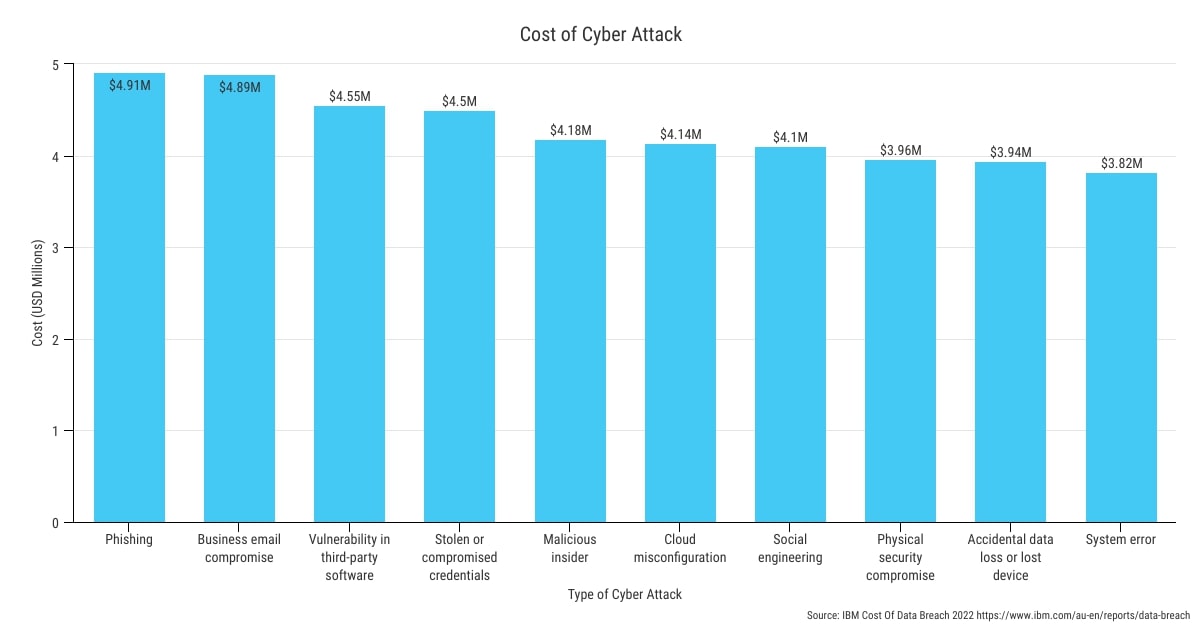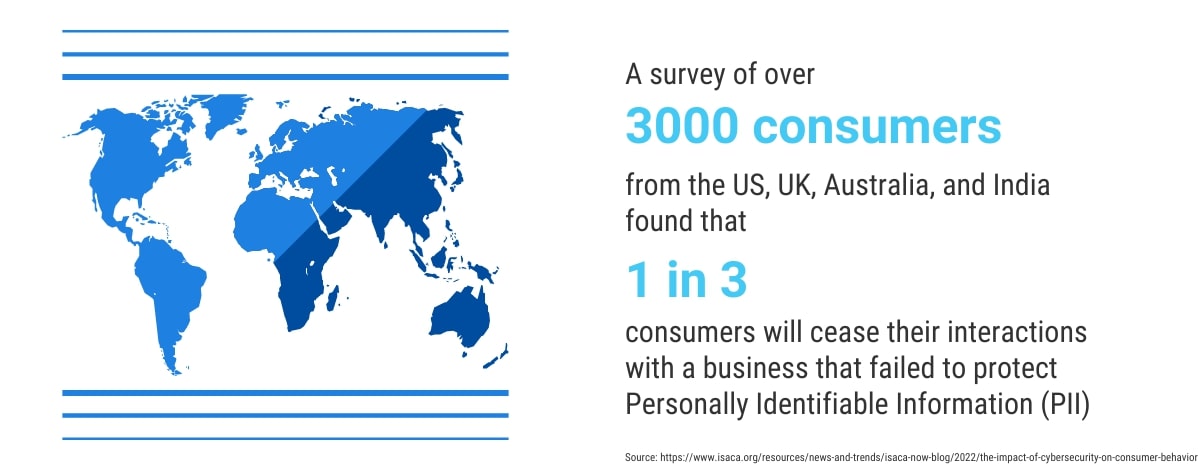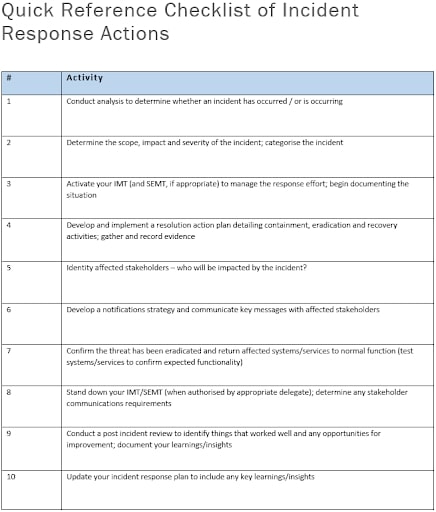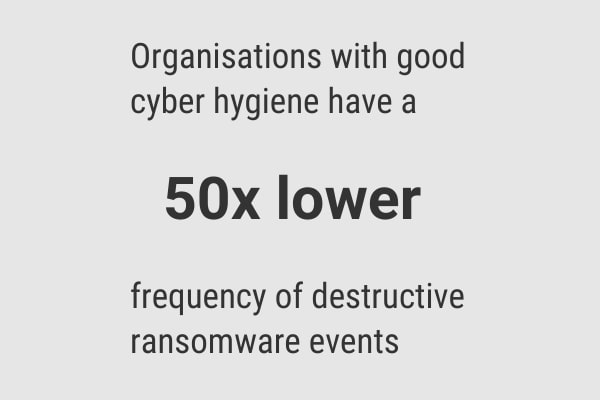Implementing cyber hygiene practices is one of the most effective ways to protect your business from malicious actors and potential data breaches.
As a business owner, the security of your company’s data is paramount. With the prevalence of cyber-attacks in the modern world, it’s increasingly important that your business takes proactive steps to ensure its networks remain secure.
In this blog post, we’ll explore why your business needs to implement cyber hygiene practices, as well as some of the challenges of doing so.
What is Cyber Hygiene?
Cyber hygiene is an essential practice in today’s digital age, and it’s vital for businesses to know what it is and why it’s important.
Cyber hygiene refers to the day-to-day activities that your business needs to do in order to keep its data secure. This includes everything from monitoring for potential security threats and regularly patching software to setting up backups and installing a good antivirus program. It’s the steps your business’s users take every day to maintain a robust cyber security posture.
Cyber hygiene helps businesses protect their data and stay secure online, which is especially important in light of the increasing number of cyber-attacks taking place. It’s estimated that 40-80% of Australian businesses were subject to some kind of cyber attack in the last 12 months.

One of the main goals of cyber hygiene is to create a secure environment for data storage and communication. Above all, this means ensuring that all systems are properly configured, updated, and monitored for potential vulnerabilities.
Additionally, it involves using strong passwords and two-factor authentication where possible, as well as keeping all software up-to-date.
Other aspects of cyber hygiene include regular monitoring for signs of a breach or intrusion, implementing access control measures, training employees on cyber security practices, and having an incident response plan. All of these steps are essential for keeping a business safe from cyber-attacks.
Ultimately, cyber hygiene is an important practice for any business looking to protect its data and remain secure online. It involves taking proactive steps to secure the system and regular monitoring for potential threats, which can help prevent costly breaches and ensure that data remains safe.
Cyber Hygiene Challenges
As a business owner, you might encounter a few problems when trying to implement cyber hygiene practices.
1. Resistance to Change
Getting employees to change their behaviour is always a challenge. Even more, if it’s for something they can’t necessarily see. In many cases, you may find employees resistant to changing their behaviour or unaware of cyber hygiene’s importance.

2. Lack of Resources
This is a big factor for smaller businesses. Some businesses may need more resources to implement and maintain a cyber hygiene program, such as budget or personnel. However, increasing these requirements isn’t always an attractive option.
3. Difficulty Measuring Success
It can be difficult to measure the effectiveness of a cyber hygiene program, making it challenging to determine if the program is achieving its desired outcomes.
4. Difficulty Keeping Policies Up To Date
Cyber threats are constantly evolving, so it can be difficult for businesses to keep their policies up to date to address new threats.
5. Enforcing Cyber Hygiene Policies
Some businesses may find it difficult to ensure that all employees are following the cyber hygiene policies, and may struggle to enforce the policies effectively.
This can be especially challenging for larger organisations where multiple teams may be involved with different aspects of security measures. Additionally, some employees may feel that they know better than the rules put in place and choose not to comply with them.
Companies need to ensure that there are processes for providing training on why these policies are important.
Get Your Free Essential Eight Cyber Security Report
Learn:
-
- The cyber security gaps costing you time and money.
- Practical steps to upgrade your security measures.
- The hidden risks of poor security protocols.
- How to bolster your cyber security and aid business growth.
The Benefits of Cyber Hygiene Practices
There are countless benefits to implementing cyber hygiene practices in your business. Here are a few.
1. Increased Security
Cyber hygiene practices can help protect a business’s sensitive information and systems from cyber-attacks.
2. Compliance
Adhering to cyber hygiene practices can help businesses meet regulatory requirements and avoid potential fines or other penalties
3. Improve Employee Awareness
Cyber hygiene practices can help educate employees on best practices for protecting sensitive information and systems, which can reduce the risk of accidental data breaches.
4. Reduce Costs
The average global cost of a data breach is $4.35M USD. Depending on which industry your business operates in, or the type of attack that occurs, this cost could be even higher. Implementing cyber hygiene practices can help a business avoid costly data breaches and recovery efforts.

Additionally, companies that practice good cyber hygiene may be eligible for discounts on cyber insurance premiums. This could lead to significant savings over time as well as peace of mind knowing that financial protection is available should a breach occur.
Furthermore, businesses that actively practice good cyber hygiene will also benefit from reduced operational costs. Cybersecurity threats can affect operational efficiency, requiring businesses to hire additional staff or invest in expensive software solutions to address them. By proactively implementing cyber hygiene practices, your business can reduce the need for these additional investments.
5. Better Risk Management
Having cyber hygiene practices in place can help your business identify and mitigate potential security risks.
6. Strong Reputation
When it comes to cyber security in the business world, consumer confidence is low. 70% of consumers believe that businesses aren’t doing enough to secure their personal information.
Accordingly, businesses with good cyber hygiene practices in place are viewed more favourably by customers, partners and investors. This improved reputation can lead to an increase in trust, which can translate into higher profits and customer retention.

It’s important for businesses to remain vigilant when it comes to cybersecurity. Doing so allows them to remain competitive and project a professional image online. By proactively engaging in good cyber hygiene, businesses can ensure they remain ahead of the competition and build long-term customer loyalty.
How To Implement Cyber Hygiene Practices In Your Business
So, we’ve looked at the challenges and benefits of implementing cyber hygiene practices in your business. Now let’s dive into how to approach implementing a successful cyber hygiene program.
Develop a Cyber Security Strategy
First, you should develop a comprehensive security strategy that outlines the specific steps that will be taken to protect your networks and systems. This should include identifying potential threats, determining the organisation’s risk tolerance, and setting clear security objectives.
Conduct Regular Security Assessments
Conduct regular security assessments to identify vulnerabilities and potential threats. This can be done through penetration testing, vulnerability scanning, and other methods.
Implement Security Controls
Implement a variety of security controls to protect your network and systems. This can include firewalls, intrusion detection and prevention systems, encryption, and other measures.
Train Your Employees On Cyber Hygiene
Cyber security training for employees is crucial to your business’s cyber security. Your employees should be trained on the importance of cyber hygiene and the specific steps they can take to protect the organisation’s networks and systems. This can include training on safe browsing habits, password management, and identifying phishing attempts.
Develop An Incident Response Plan
Your business should have a comprehensive incident response plan that outlines the steps that will be taken in the event of a cyber-attack or data breach. This should include a clear chain of command, and procedures for containing and mitigating the incident, as well as reporting to relevant authorities.

Regularly Update Software and Systems
Your business should ensure that all software and systems are kept up-to-date with the latest security patches and updates. This can help to protect against known vulnerabilities and exploits.
Monitor Network Activity
Monitor network activity to detect and respond to potential threats in real-time. This can be done through log analysis, intrusion detection systems, and other tools
Install Anti-Malware Software
Installing anti-malware software on all business devices can help detect malicious activity and protect against potential threats. And, remember to keep the software updated so it can protect you against the latest threats.
Continuously Evaluate and Improve
Making your business cyber secure is a continuous process, so it’s important to routinely evaluate and improve your business’s cyber security posture. Regularly assess the effectiveness of the implemented measures, update the policies and procedures accordingly, and adapt to new threats.
Furthermore, implementing effective cyber hygiene policies requires a combination of technical measures and a culture of security awareness among employees. By following the steps outlined above, you can help to minimize the risk of cyber-attacks and data breaches and ensure that your business is able to respond quickly and effectively if an incident does occur.
Conclusion
Cyber hygiene is an essential part of protecting your business and its data.
Cyber security is a rapidly changing field and the best practices you develop today may need to be adjusted tomorrow. Staying up-to-date on the latest trends, vulnerabilities, and exploits is crucial to ensure your network is secure. An effective cyber hygiene program can help keep your business safe from evolving cyber threats.
At Stanfield IT, we understand the importance of cyber security and the need for businesses to implement effective cyber hygiene practices. We are dedicated to providing businesses with the tools and expertise they need to protect their data. If you are interested in learning more about how we can help you, please visit our cyber security services page.

